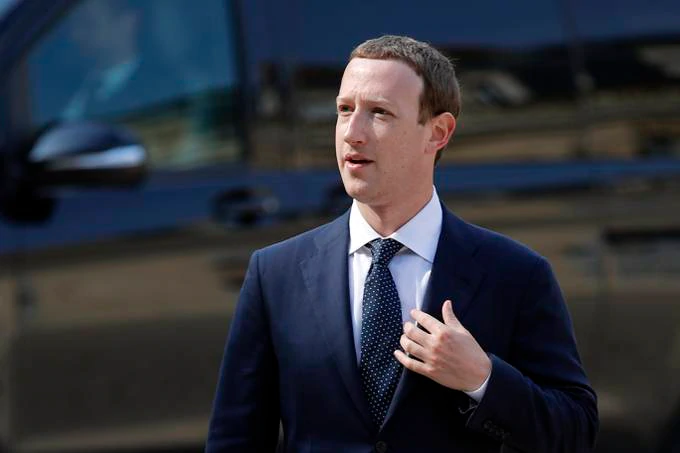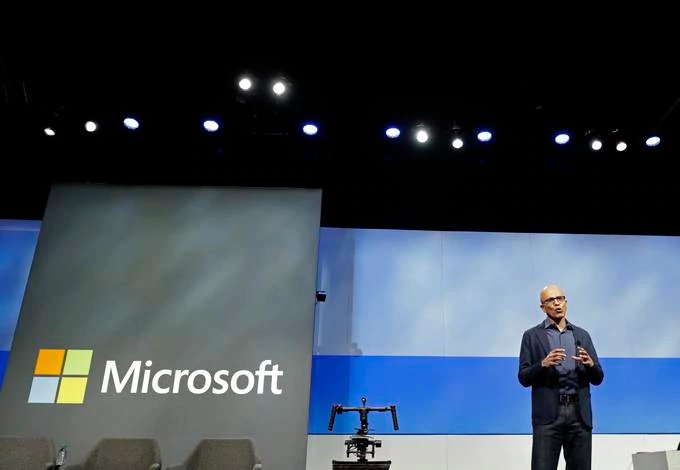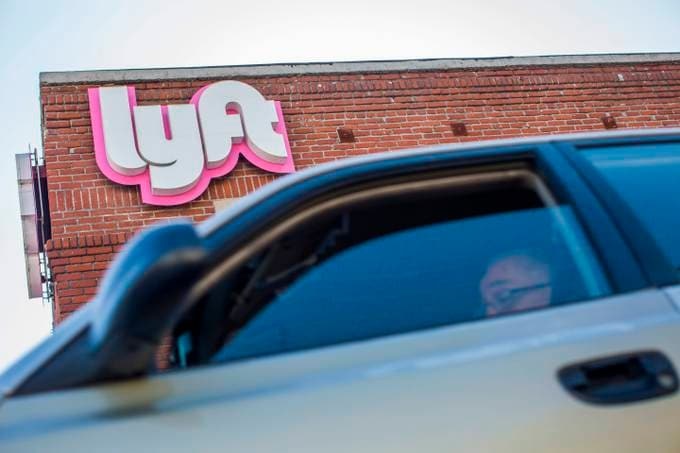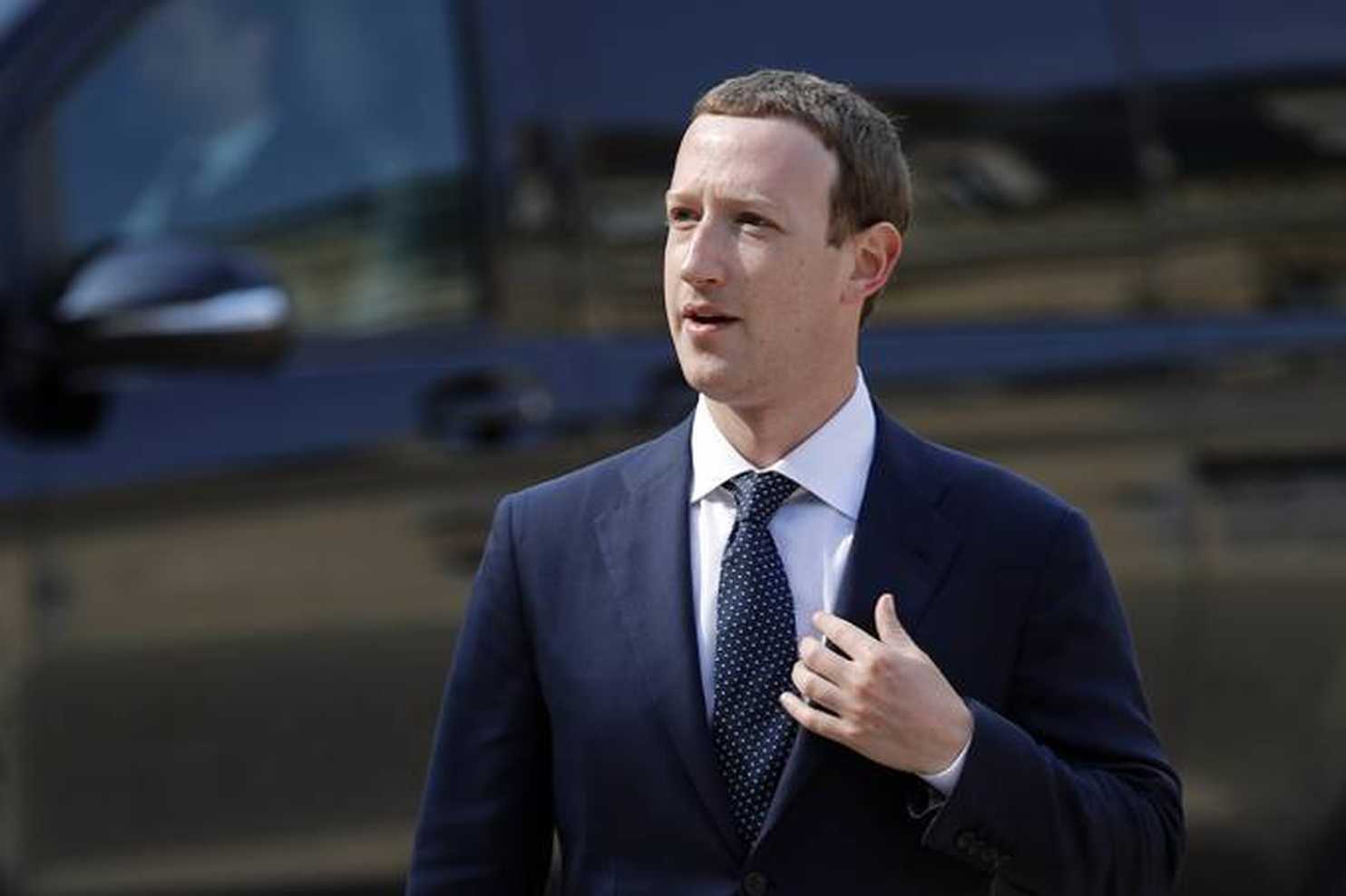with Tonya Riley
Facebook expanded a tool this morning that allows people to transfer their pictures and videos to Google Photos.
The move marks a milestone in the company’s push for data portability, tools that allow people to transfer their data from one Internet service to another. People in the United States and Canada can access the new feature in their Facebook settings starting today, under the “Your Facebook Information” tab.
A graphic explaining the tool, provided by Facebook
Stephen Satterfield, Facebook’s director of privacy and public policy, told me in an interview that the social media giant hopes tools like this one can help jump-start a debate about companies expanding their data transfers.
“Thoughtfully implemented portability should both protect people’s data and also give them choice,” Satterfield said. “We think that there is a way to protect privacy while stimulating innovation in competition.”
Major tech companies’ efforts to allow users more flexibility to move their data could help them stay a step ahead of antitrust regulators. If it’s easy to move photos and data from service to service, the companies can argue they’re not walled gardens that lock in users, and that consumers have plenty of leeway to move from service to service.
However, that expanded ability leads to more privacy concerns.
And Facebook is rolling the photo tool out at a pivotal moment, as large tech companies’ power and hold on mass amounts of consumer data is in the spotlight amid the coronavirus pandemic.
For the past two years, Facebook has been increasingly restricting the movement of data from its service to others in the wake of the Cambridge Analytica scandal. The political consultancy firm tied to the Trump campaign improperly obtained the Facebook data of millions of people.
“A lot of the conversation that was happening around Cambridge Analytica was about to what extent should platforms like Facebook enable the transfer of information and what kinds of protections should be in place when they are enabling those transfers?” Satterfield said.
Facebook for years has offered a tool allowing people to download user data held by the company, but it’s been difficult to move that data onto competing services. This new initiative aims to change that.
Facebook is taking some steps to make sure the transfer of photos to Google is secure, such as encrypting the move end-to-end. The company also says it has a responsibility to confirm the identity of the person initiating a transfer, so it will require people to reenter their passwords to start the process. The company pledged transparency about the exact nature of the data being transferred.
But the new tool has its limits.
The tool won’t let people move all of their photo data residing on Facebook. Satterfield says that photo tags identifying other users in a picture won’t be allowed to move. Users will also only be able to port over photos they uploaded to the service themselves and won’t be able to move photos in which they are tagged by friends.
The new effort will only allow Facebook users to transfer their photos to Google Photos, and not other cloud storage services. The company says it’s planning to expand the partners in the future.
Ultimately, if big companies like Facebook only allow users to share information with other big companies, that could further solidify the power of those which already command the largest market share. Right now, much of the work is being led by the largest companies through the Data Transfer Project of which Facebook, Apple, Google, Twitter and Microsoft are all members.
But Satterfield acknowledged more small companies will have to participate to ensure people have more choice about where their data moves. He says that’s the next phase of the project.
Ultimately, if big companies like Facebook only allow users to share information with other big companies, that could further solidify the power of those which already command the largest market share. Facebook, Apple, Google, Twitter and Microsoft are all members of the Data Transfer Project, which aims to create open-source tools to facilitate data transfers.
Satterfield tells me the largest tech companies started the initiative because they have the technical resources, but the next phase of the project is to get smaller companies involved.
“We needed to take the first steps here,” he said. “They are only first steps. This project works, only if we can get companies involved, including smaller companies.”
But expanding the service to smaller companies creates new questions about how companies can ensure their partners have proper security and privacy policies in place.
“We think this would be a good area for regulation,” Satterfield told me.
Tech companies are facing regulatory pressure to expand the portability of their data.
Recent privacy laws including Europe’s General Data Protection Regulation give people a legal right to data portability, putting pressure on Facebook and other large tech companies to build tools such as this one.
Yet Facebook chief executive Mark Zuckerberg has been calling on global policymakers to provide more specifics on how companies should build tools like this one — especially around who’s responsible for the data when it’s moving between companies.

Facebook CEO Mark Zuckerberg. (Francois Mori/AP)
“Even though it’s the law, there’s not a lot of guidance about how companies should build portability,” Satterfield said. “And there are a lot of open questions around what portability should look like as companies are building it.”
In the United States, Sens. Mark R. Warner (D-Va.), Richard Blumenthal (D-Conn.) and Josh Hawley (R-Mo.) introduced legislation mandating that large companies allow users to access their data in a machine-readable format and maintain interfaces to let competing platforms access it.
Earnings are out
Tech companies are mostly weathering the coronavirus pandemic — for now.

Microsoft CEO Satya Nadella. (Ted S. Warren/AP)
Tesla, Microsoft and Facebook all reported a year-over-year rise in revenue during the first three months of 2020. But the companies demurred on providing investors with projections for future earnings in light of the ongoing uncertainty the coronavirus has created.
Facebook reported an 18 percent increase in first-quarter revenue but CEO Mark Zuckerberg warned about long-term threats, Elizabeth Dwoskin reports.
“I worry that reopening certain places too quickly, before infection rates have been reduced to very minimal levels, will almost guarantee future outbreaks and even worse economic outcomes,” he said.
Microsoft recorded huge revenue gains — pushing stocks up nearly 12 percent since the beginning of the year, Jay Greene reports. Analysts expected as much, as Microsoft remains buoyed by increasing cloud-based offerings, including its “Teams” enterprise software.
The pandemic could actually help Microsoft consolidate power during a rocky economy, analysts say. “The big get bigger. Scale wins,” Stifel Nicolaus & Co. analyst Brad Reback said. “These guys have all the right products in place.”
Tesla’s profits were down compared to the past two quarters, but it still reported $16 million in profits for its first quarter, Faiz Siddiqui reports. The company’s nearly $6 billion in quarterly revenue was up 32 percent year over year.
Production delays caused by the pandemic could prevent the company from reaching sales goals, analysts caution. “It is difficult to predict how quickly vehicle manufacturing and its global supply chain will return to prior levels,” Tesla told investors.
Twitter, however, swung to a loss for the first time in two years as the pandemic dampened digital advertising spending, the Wall Street Journal’s Georgia Wells reports. At the same time, the social network this morning reported its strongest user growth yet as a public company.
“In this difficult time, Twitter’s purpose is proving more vital than ever. We are helping the world stay informed,” Twitter Chief Executive Jack Dorsey said in a statement.
Rant and rave
The bigger news from Tesla’s call was CEO Elon Musk’s expletive-laden rant calling stay-at-home orders “fascist.”
“To say that they cannot leave their house and they will be arrested if they do, this is fascist,” Musk said, elaborating on tweets from earlier in the day. “This is not democratic — this is not freedom.”
FREE AMERICA NOW
— Elon Musk (@elonmusk) April 29, 2020
The comments add to increasingly erratic behavior from Musk, Faiz notes. After promising to start pumping out its own version of respiratory devices, Musk began to sharply criticize stay-at-home orders and calling the panic “dumb.”
Bravo Texas! https://t.co/cVkDewRqGv
— Elon Musk (@elonmusk) April 29, 2020
The comments curried favor with conservative Twitter users who have voiced similar opinions. But Democratic lawmakers slammed Musk. Rep. Pramila Jayapal (D-Wash.):
STAY HOME. https://t.co/3qTK3D0CE7
— Rep. Pramila Jayapal (@RepJayapal) April 29, 2020
Rep. Ilhan Omar (D-Minn.):
Billionaires want to continue profiting off your labor even if it means risking millions of lives.
They call this “freedom.” pic.twitter.com/9rRKeHDh4m
— Rep. Ilhan Omar (@Ilhan) April 29, 2020
Our top tabs
The Trump administration yeterday added Amazon to an annual blacklist of retailers selling counterfeit goods.

Plastic crates move along a conveyor at the Amazon fulfillment center in Robbinsville, N.J. (Bess Adler/Bloomberg News)
It’s the first time a U.S. company has ever been added to the “notorious markets” list, Paul Wiseman at the Associated Press reports. The report, issued by the U.S. Trade Representative, lists Amazon domains in Canada, France, Germany, India and the United Kingdom.
Amazon called the move a “political attack” and suggested the action was motivated by President Trump’s well-known personal feud with Amazon. (Amazon chief executive Jeff Bezos owns The Washington Post.)
U.S. businesses have complained Amazon makes it difficult for consumers to spot frauds and takes too long to remove counterfeits, the USTR said. The American Apparel and Footwear Association, a trade group representing some of those businesses, praised the move.
Amazon’s well-documented counterfeit problem has been a growing source of tension between the company and the White House, which has pushed to crack down on pirated goods that hurt U.S. businesses.
Earlier this year White House adviser Peter Navarro accused Bezos of reneging on a promise to meet about counterfeit issues, setting off an online feud.
A new trade group is lobbying Congress to make it easier for app makers to receive coronavirus relief from the Small Business Administration.

A woman wearing a mask checks her phone. (Lucas Jackson/Reuters)
The App Coalition will represent smaller tech companies, which have struggled in some instances to seek coronavirus relief because of uncertainty about the eligibility of many venture capital-backed businesses to receive the aid. App use has exploded during the pandemic, but the groups says members in sectors such as travel have seen serious hits to their bottom lines.
“A dynamic app economy is critical to consumers who rely on apps as their primary means of accessing digital content and information,” Eric Silverberg, CEO of Perry Street Software, said in a statement. “It’s important that Congress recognizes that the multi-billion dollar app ecosystem remains vital as part of the overall efforts to restart and rebuild the economy.”
Beyond the pandemic, the group hopes to work with Congress on privacy and content moderation issues. The group’s focus on smaller companies could also position it as a potential resource to House lawmakers who are exploring how tech giants buy up their competitors in an ongoing antitrust probe.
Hill happenings
Industry members and advocacy groups joined forces to demand Congress guarantee Internet access in any new relief legislation.
“Like food, water, and electricity, everyone needs broadband internet service during this unprecedented crisis,” more than 200 groups, local government associations and companies including Twitter and Vimeo wrote in a petition to Senate and House leadership.
That’s why we’ve joined 200 organizations and industry peers in urging the US Congress 🇺🇸 to prioritize access to broadband in their next #COVID19 stimulus package. #WeNeedBroadband https://t.co/1WPr2nLjX4
— Twitter Public Policy (@Policy) April 29, 2020
Congress included $125 million for rural broadband in the first relief package, but advocates say the money doesn’t go far enough to address steep digital inequality in the United States at a time when the Internet is key to education, health care and other essential needs.
Sens. Richard Blumenthal (D-Conn.), Edward J. Markey (D-Mass) and Rep. Nydia M. Velázquez (D-N.Y.) also expressed their support for additional broadband funding at a virtual event presenting the petition.
Inside the industry
Google is offering for free Meet, its group video chat tool, with no time limits through Sept. 30.

Google’s office in Berlin. (Krisztian Bocsi/Bloomberg News)
The move makes Google the latest tech giant to rally against videoconferencing service Zoom’s rapid rise in popularity, Rachel Lerman reports. Google Meet already has 100 million daily users and is adding about 3 million a day, executives said in a call. Meet will require users to have a Google account, which executives hope will help the platform avoid the kind of anonymous harassment that has surfaced on Zoom.
Workforce report
Lyft is laying off 17 percent of its workers.

The Lyft Drivers Hub in Los Angeles. (Apu Gomes/AFP/Getty Images)
The layoffs will equal nearly 1,000 jobs and coincide with a three-month furlough of about 5 percent of the staff and reduced salaries, Faiz Siddiqui reports.
“The COVID crisis has taken an enormous toll on the entire world, “chief executive Logan Green wrote in an email to employees. “Our guiding principle for decision-making is to ensure we emerge from the crisis in the strongest possible position to achieve the company’s mission.”
Lyft and other ride-hailing companies have seen a significant cut in business during stay-at home orders. Uber is also weighing layoffs.
More workforce news:
Trending
Bookmark this
Daybook
- Apple and Amazon will announce earnings today.
Before you log off
DIYers are making their own respirators, Motherboard reports.
Walkthrough of my PAPR. This is a Powered Air Purifying Respirator I made for under $30. These are over $2500 commercially and completely unavailable right now so I guess this is the next best thing? pic.twitter.com/DR0X8Csxlo
— NuclearGeek (@spickett84) April 8, 2020






108-225x125.jpg)









